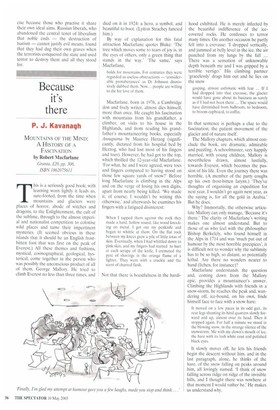Getting away with murder
Raymond Carr
THE DEGAEV AFFAIR by Richard Pipes Yale, f16.95, pp. 153, ISBN 0300098480 Few suspected that 'jolly little Pell', Professor of Mathematics at the University of South Dakota, where he was a much loved father figure to his students whose enthusiasm for football he shared, was in reality Sergei Degaev, one-time terrorist and police informer. He had co-operated with the Tsarist security chief, Lieutenant-Colonel Sudeikin, in betraying his fellow terrorists. Either from remorse or in order to escape execution by terrorists as a traitor, he agreed to assassinate Sudeikin. When, in 1921, he died peacefully in his bed he seemed an exemplary poor immigrant who had made his way successfully in the free society of the melting-pot.
Degaev came from a bourgeois family of romantics 'with exalted if unfocussed ambitions'. He became a terrorist, one of his fellow terrorists suspected, because he was a psychopath suffering from folie de grandeur. Unimpressive as a personality, as a terrorist he would become a person of importance.
In this absorbing. brilliantly researched short book Professor Richard Pipes not only examines Degaev's twisted personality, characteristic alike of spies and those who work in the underworld of counterintelligence. e.g. Burgess and Peter Wright. He sets Degaev's extraordinary career in the context of Russian revolutionary politics in the late 19th century. For Pipes the Bolshevik revolution of October 1917 was a coup d'etat engineered by a minority of professional revolutionaries who, like Lenin, despised liberal democracy. They realised that they could only stay in power by terror. More than this, Lenin, he argues, had been impressed by the terrorist organisation the People's Will, formed in 1879 for the specific purpose of assassinating the reigning Tsar Alexander II, which Degaev joined in 1880. Confronted by police repression and infiltration by informers, the People's Will developed clandestinely the particular morality described by Dostoevslq in The Devils. The end, the overthrow of Tsarist absolutism, justifies the means, legitimising the 'execution', not only of members of
the political establishment but of weaklings and suspected traitors in their own ranks. With the October Revolution the morality of a clandestine terrorist organisation became that of the Bolshevik state.
The central story of this fascinating display of scholarly detective work is the bizarre relationships that developed between Degaev and Sudeikin. Both were frustrated and bitter men. Degaev hoped for glory but was cold-shouldered by the Executive Committee of the People's Will as 'soft', lacking the commitment and ruthlessness of a hardened terrorist. Sudeikin, addicted to French crime fiction and its heroes, was of modest origins. In charge of security, he 'turned' arrested terrorists by posing as sympathetic to their end: the destruction of tsarism. In his interrogations he had a copy of Marx's Capital on his desk. Highly successful where the official police failed, his achievements were not rewarded with promotion and an interview with the Tsar. He developed a pathological hatred of his aristocratic superiors as hopeless incompetents while they dismissed him as a vulgar policeman. After staging Degaev's escape from prison, he and Degaev became bosom friends and drinking companions. Degaev gave Sudeikin information that enabled him to arrest the leading terrorists of the People's Will and break up its organisation. Both professed that mindless terrorism was counter-productive, strengthening reaction and imperilling any genuine reform. Sudeikin financed Degaev as leader of a radical party which would back a coup by Sudeikin that would make him the most powerful man in Russia. He even wrote articles in the party's press. But Degaev lost his nerve as his relationship with Sudeikin leaked out. To re-establish himself as a terrorist he agreed to assassinate Sudeikin. He invited his friend to his apartment where he was shot and bludgeoned to death.
This book not merely unravels 'a fantastic scheme of collaboration between the police and the terrorists that in its audacity has neither precedent nor sequel in Russian history', it is a treatise on terrorism. To conservatives like Pipes, terrorism is not to be explained solely as a response to the repression of a police state. Thus, in states which guarantee liberal freedoms, 'for some dimly understood reason a sizeable body of the young take to terrorism', as happened in the 1960s with the BaaderMeinhof gang in Germany. Their professed aim is to overthrow the 'imperialist', or 'capitalist', 'materialist' system. 'This aim serves as a pretext for resort to violence: but violence, ostensibly the means to a noble end, becomes an end in itself.' Pipes' scorn is directed at those misguided liberals who may disapprove of violence and murder yet turn a blind eye to its exer cise because those who practise it share their own ideal aims. Russian liberals, who abandoned the central tenet of liberalism that noble ends — the destruction of tsarism — cannot justify evil means, found that they had dug their own graves when the terrorists conquered the state and used terror to destroy them and all they stood for.



































































 Previous page
Previous page